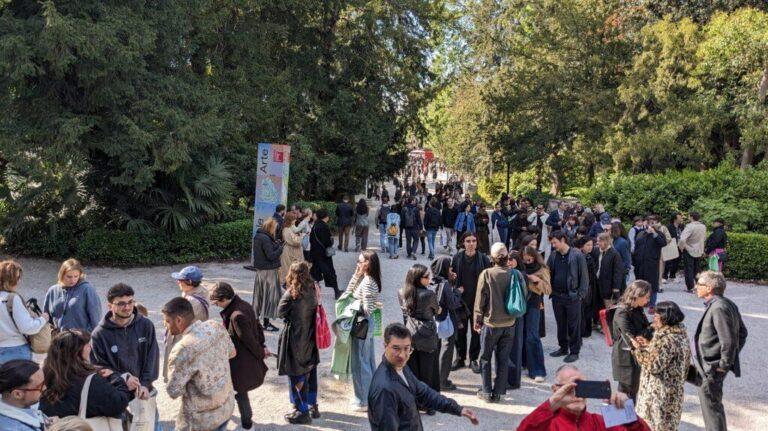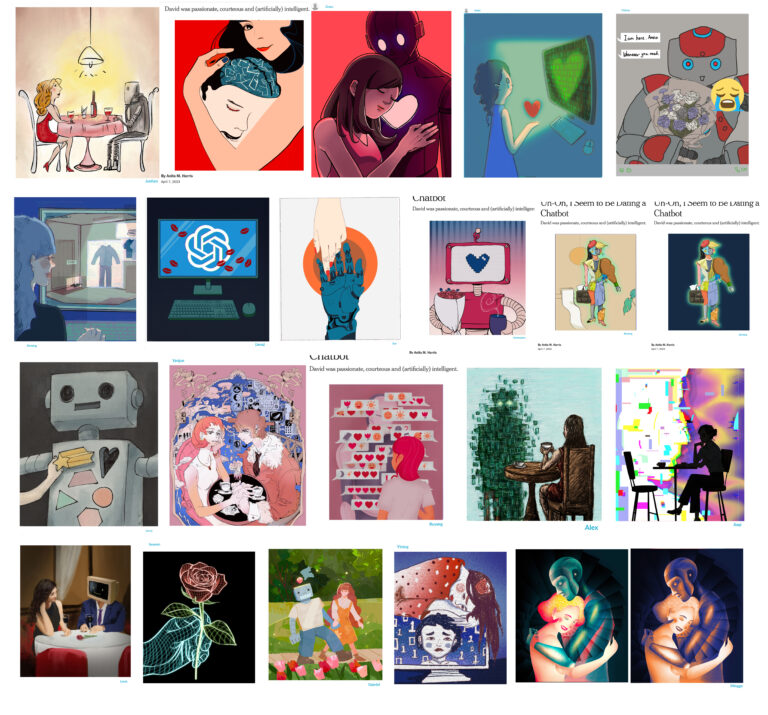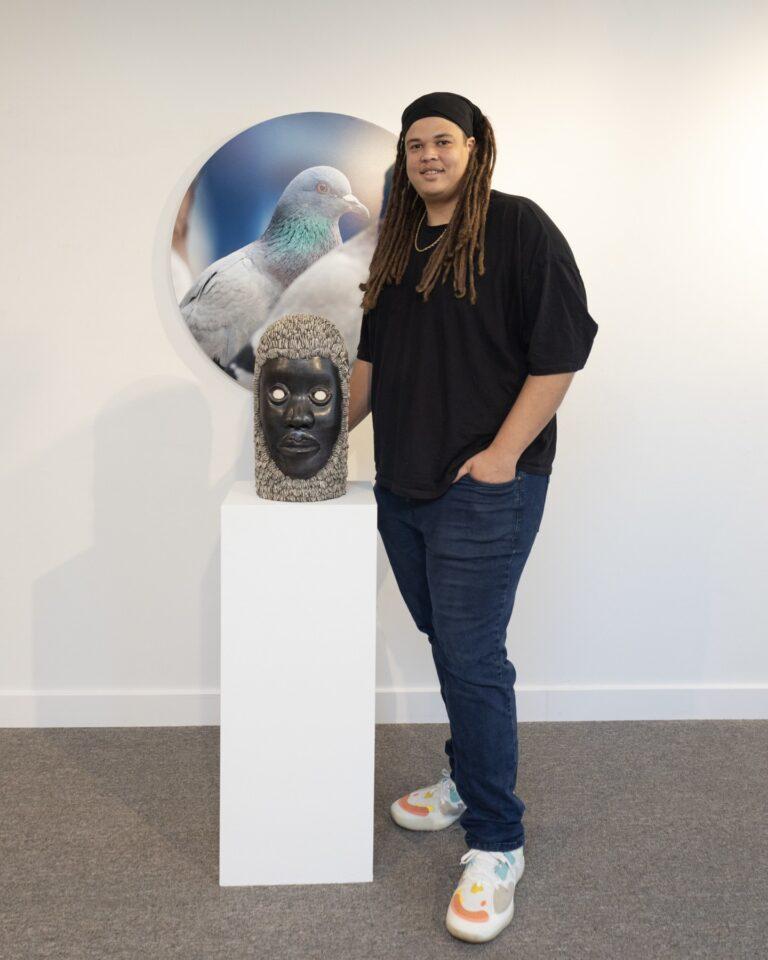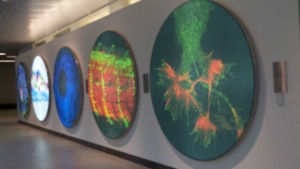 On my way to a meeting at MIT, I happened to spot some stunning photos through the window of what turned out to be the Philip Alden Russell Gallery of the David H. Koch Institute for Integrative Cancer Research. I contacted the Institute-which opened in March–and learned that the photos are featured in a gallery designed to connect the community with the Koch’s work. I happily accepted Curator Alex Fiorentino’s offer to show me around.
On my way to a meeting at MIT, I happened to spot some stunning photos through the window of what turned out to be the Philip Alden Russell Gallery of the David H. Koch Institute for Integrative Cancer Research. I contacted the Institute-which opened in March–and learned that the photos are featured in a gallery designed to connect the community with the Koch’s work. I happily accepted Curator Alex Fiorentino’s offer to show me around.
On my tour, Fiorentino explained that the galleries are designed so that visitors can explore current cancer research projects, examine striking biomedical images, hear personal reflections on cancer and cancer research, and learn about the historical, geographic and scientific contects out of which the Institute emerged. The photos, he said, were taken under microscopes by Koch research scientists and collaborators–chosen through a contest, then blown up, printed on fabric, adhered to stretchers over light sources, Each has a scientific story to tell. The photo just below for example, is one I took of an EI-fluorescence micrograph by Christian Kastrup of the Anderson and Langer Labs at the Koch. It shows a new technique for delivering treatments to a blood vessel (seen in blue) using nanoparticles and microparticles. According to a Koch publication, the original image was dark, with nanoparticles, microparticles and the blood vessel each stained a different color. But, in this version–to which my photo does not do justice— the original colors are inverted.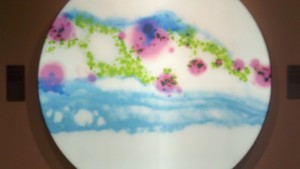
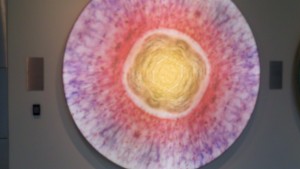
Another beauty is Kara Cerveny’s confocal micrograph–“Sunrise in the Eye: the Making of a Retina.” Taken by the Koch collaborator at the Steve Wilson Group at University College, London, it is part of Cerveny’s investigations into how stem cells in the zebrafish eye differentiate to become more specialized cells. Her goal is to gain insight into how the normal development process goes awry in cancer and other diseases. There are ten award-winning photos displayed– all viewable any time through the Koch windows or inside during gallery hours–9-5 on weekdays.
Other gallery highlights include exhibits on five new technologies to combat cancer being developed at the Koch; a “video box” providing 16 presentations by cancer patients, their families and scientists; wallpaper showing cellular processes, a mosaic floor composed of thousands of tiles laid out to form a map of the Kendall Square area; and timelines showing the parallel histories of science and engineering at MIT. The timelines converge in the present, with the Koch’s cross-disciplinary approach to cancer. And–just inside the lobby there’s an attractive cafe.
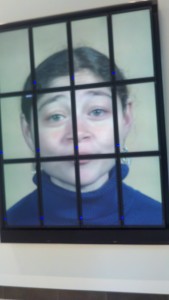
As a journalist, I’d be remiss not to mention that David Koch, an MIT alum–has been the subject of some controversy. According to a 2010 article in the New Yorker, as a cofounder of Koch Industries, the nation’s second largest privately-held corporation, he and his brother Charles are major funders of conservative/libertarian causes. But, Wikipedia reports, gifts of $600m for scientific research and the arts surpass David Koch’s political donations.
While ordinarily I wouldn’t think that cancer research would be much of a draw, the gallery, named for financeer Philip Alden Russell– a mentor of funder Charles B Johnson and his wife Anne Johnson– is well worth a visit. Or several.
–Anita M. Harris
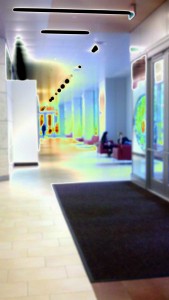
Koch Institute Public Galleries 500 Main St. Cambridge, MA Open to the public 9-5 weekdays. Admission Free.
New Cambridge Observer is a publication of the Harris Communications Group, an award-winning public relations and marketing communications firm located in Cambridge, MA.

